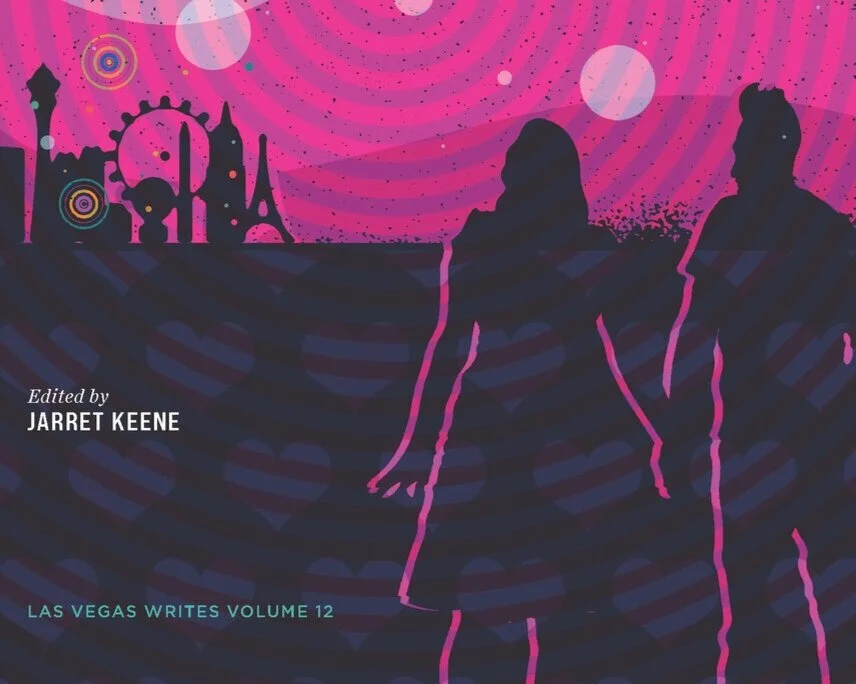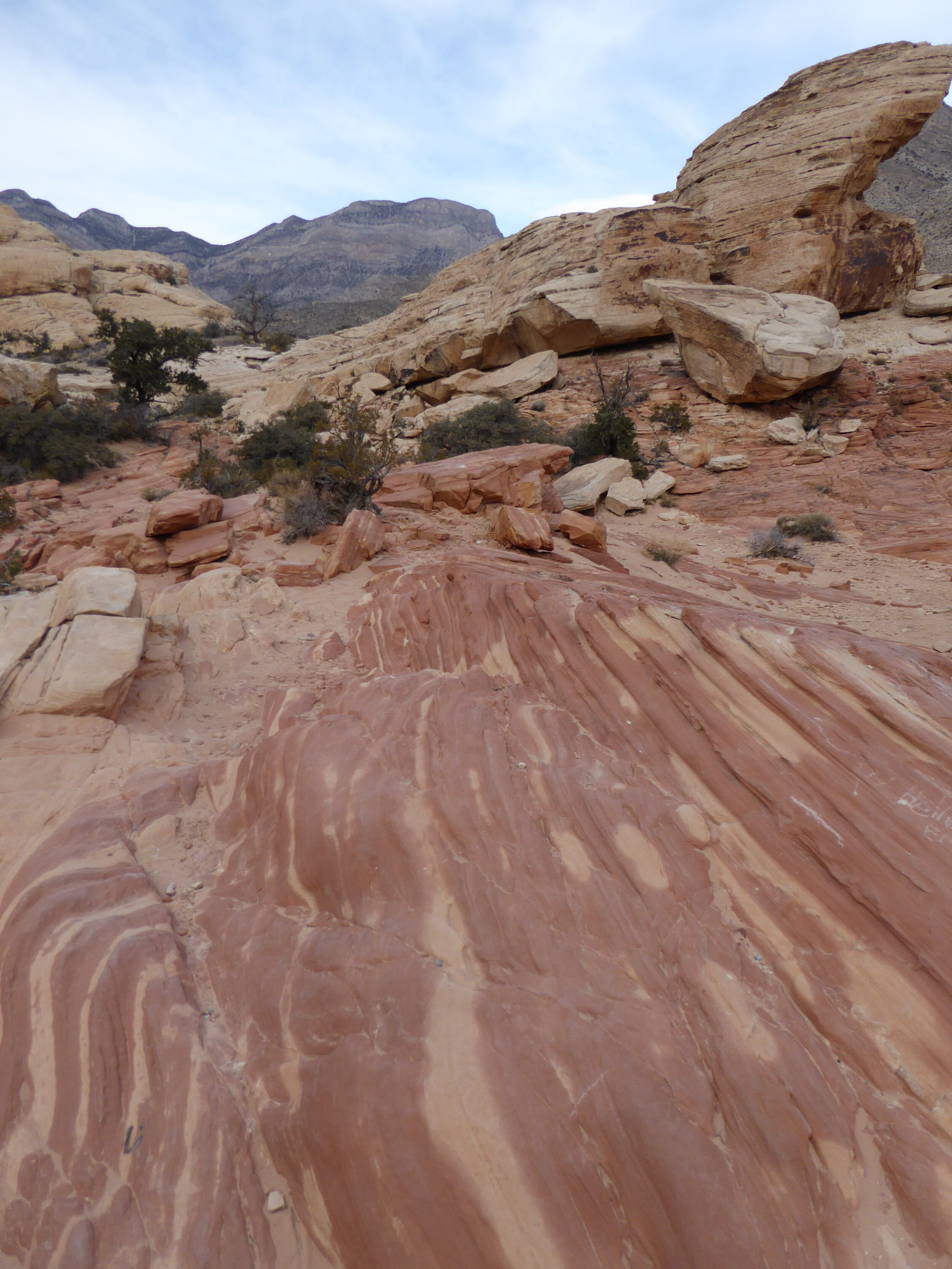By Flynn Dexter
I would like
To reach into the darkness
With my arms
And scoop it into my hands
(Amorphous jell-o)
By David Gamble Jr.
Although I am an attorney in my day job, one of my passions is stand-up comedy, which I have performed for the last seven years. In this role, I was once able to get a room full of law enforcement officers to agree with the premise that police violence falls disproportionately on African Americans.
By Bobbie Ann Howell
We hoped to get as many people as possible thinking about this question. What is it we love about Nevada, what is it that other people across the state love about Nevada? Does someone in Ely, or Elko, or Denio, or Cal-Nev-Ari love what I love?
By Antoinette Cavanaugh
The earthy scent upon the cool morning air silently announces northern Nevada’s perennial transition of seasonal change to fall. Fine, airy tendrils playfully tease at loose strands of hair playing them against my forehead as if tugging at seemingly ancient Shoshone memories embedded at the back of my mind, announcing, “It is time.”
By Jarret Keene
I love reading short fiction that takes my breath away. Stories that, one after the other, make my head spin with fantastic plots, and with burning questions like: Is the laconic hotel security officer about to witness an ugly fistfight or a make-out reunion between a mature couple on the casino floor? Can an on-the-run mother-daughter duo roaming the post-apocalyptic desert evade the flying sand whales that deafen with uncanny songs?
By Margaret Crowley
The Dalai Lama has it right - we need to talk. More accurately, we need to talk the right way: face to face, with openness and curiosity. In these unprecedented times when hundreds of Americans are dying, we should be connecting with one another, united in grief. Yet we remain polarized, finding it increasingly difficult to engage with those whose viewpoints differ from ours. How has it come to this?
By Joan Paulette Dudley
Write in the ink of the grandmothers: ash from a cold hearth,
tears that fall for no reason, and blood from a needle-pricked finger.
List your fears on a paper bag, pulled from under the sink.
By DeAnna Beachley
she emerges
sloughing bark and leaves
as snakes shed their skin
abandon the old
for the new
By Aimee Nezhukumatathil
Pilea plants can make even the blackest thumbs look positively green. Not just green, but lime, forest, Kelly, viridian, jade, jungle, shamrock, chartreuse, and even honeydew. At a time of so much stillness and uncertainty, the pilea gave me so much promise.
By Ellen Hopkins
I’m currently at a writing retreat, one I’ve done before, but not in a while. Climbing out of the COVID shell and emerging into the familiar. Sort of. I’ve spent the last week preparing for a move, our first in over 30 years. The bio I’ve used for at least a decade says I live with my extended family, and this pivotal moment in my history means uprooting them, too. We will go in different directions, and wind up 2,000 miles apart.
By Abbey L. Pike
Two hundred and thirty-four years ago to the day, the framers signed the Constitution of the United States. Arguably, the Constitution remains the greatest instrument for fair governance ever produced, promising human liberty and dignity to an extent that no country before had ever dared. The framers intended the Constitution to thrive as a lasting document, so they designed a solid basis for governance and individual liberty but wove in avenues for social and governmental change.
By Afsha Bawany
I threw away my Girl Scout badges. I kept them for oh so long that in my decluttering extravaganza, I thought these were items I would have to let go. I wasn’t in Girl Scouts for long. I did not earn a sash. I could let go of my Girl Scout badges, I reasoned, because I did not end up learning how to pitch a tent after all these years. I had not camped under the stars. I did not go backpacking.
By Natalie Van Hoozer
Right now, many people across the nation feel divided. As the bilingual Spanish/English reporter for KUNR Public Radio, I do see division first hand, right here in northern Nevada, where I was born and raised. At the same time, I’ve had community members tell me they want to understand each other better.
Where does one’s literacy journey begin? From birth through childhood, adolescence, adulthood, and beyond, the need for literacy dominates the way we move through the world and understand it. One way we can think of literacy is to think of it as the ability or capacity to communicate and interact with others and to make sense of the world around us. Literacy can also come in many different forms: musical, culinary, financial, digital, and more.
Read MoreBy Kathleen Kuo
I close my eyes, and I hear the ocean. The whispers of wind filtering through leaves of grass, small flies buzzing next to my ears and zipping in and out, the round notes of a bird call. I am peacefully laying in the middle of a mountain meadow on a hot summer day and losing myself in meditative listening. After being cooped up at home for more than a year, Nevada has never sounded more beautiful than in this moment.
By Daria Peoples
Like many children of color, I experienced racism and biases at school. Back then, I didn’t know the words to describe how I was treated, but I do remember feeling as though my classmates and my teachers liked one another more than they liked me. As a visiting author in many schools across the country, I often see versions of myself sitting in desks and walking down hallways.
By Mark Padoongpatt
Las Vegas is a real place with real people. A laughable claim to most, I know. But writers, scholars, and locals can attest. Despite Vegas’ status and identity as one of the world’s top tourist destinations—an unbridled playground of gambling, shows, consumerism, and debauchery—its residents engage and experience the city in profoundly different ways. And the question of when, how, and why 2.6 million people came to build lives and communities here—real and imagined, fleeting and enduring—is all incredibly fascinating to me.
By Jagada Chambers
During the 80th legislative session in Nevada, state legislators made good on a quest that dates back decades. Efforts to change the reality for Nevada’s disenfranchised voters succeeded with the passing of Assembly Bill 431. The bill enabled all formerly incarcerated individuals to partake in our election process by casting a vote. The legislation changed the course of my life immediately, leading to a Rights Restoration Coordinator position with Silver State Voices and substantiation in my belief that voting can change things.
By Staff of Nevada Humanities
Nevada Humanities is pleased to announce the opening of the Nevada Humanities Major Project Grants that are part of the FY2022 Nevada Humanities Project Grants to Support Public Humanities Projects. These Major Project Grants, which fund projects and organizations across the state, have a public humanities project focus and will support public humanities projects that range from one month to one year to implement.
By Caitlin C. Earley
I spend a lot of time in the past. Between my research on ancient American Indigenous art and teaching art history classes at the University of Nevada, Reno, (UNR), my head is anywhere from 3000 BCE to the present. My students are sometimes reluctant to meet me there. I find this is particularly true when it comes to the art history survey. You may know this particular animal: a survey of art from the past to the present, often divided into two semesters.




















